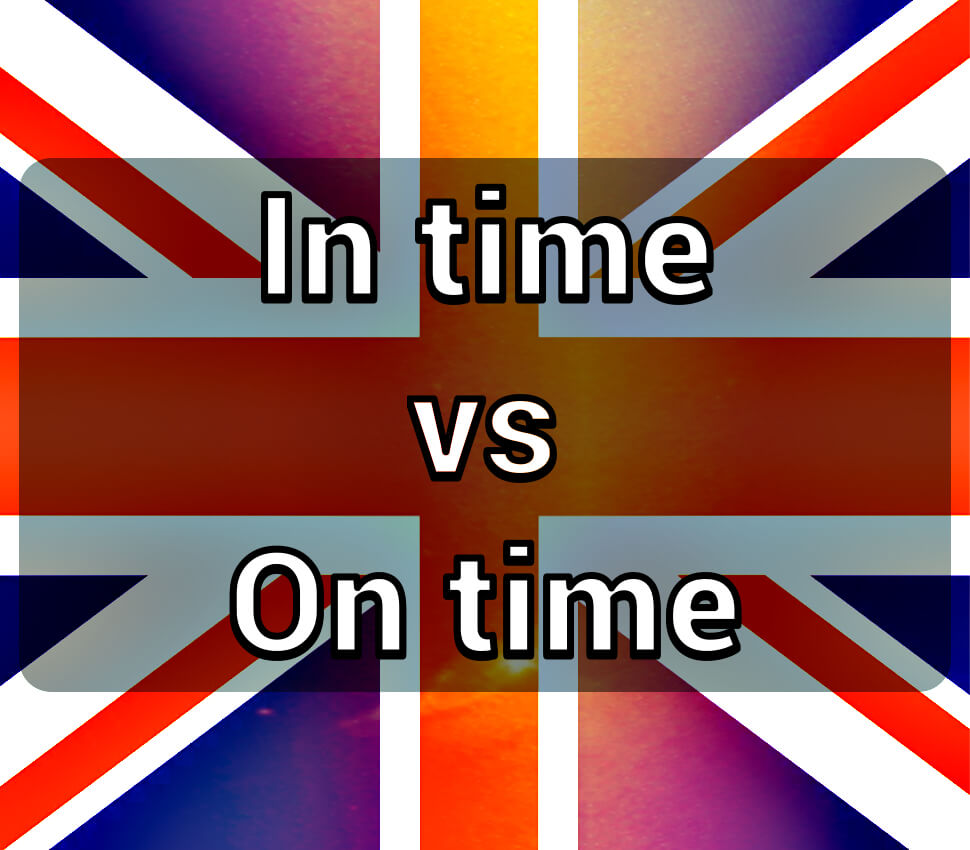“In time” and “on time” are both correct, but they do not mean the same thing.
It is a very confusing difference.
But you must know it to avoid making simple mistakes in English.
To learn more, read on.

“In time” or “on time”?
“In time” is such a common phrase in English that, if you really wanted to, you could find at least a dozen different ways to modify it and use in different situations.
But that is unnecessary for this article. To avoid confusion, I will keep it short and concise to help you learn the most important parts.
“In time” has three distinct meanings I think are important to know and I will cover them in this article.
“On time” only has one meaning. It is pretty easy to understand on its own.
The only tricky part is not to confuse it with “in time”.
After reading this post, you should have a good understanding of how they are used and will be able to use them more effectively.
In time
Here are a few ways that you can use “in time”. There are many more, but these three should be enough as an introduction to the phrase.
Meaning #1: Before it is too late
When something happens before it is too late, you can say that it happened “in time“.
We say it to indicate that something happened early enough to be possible.
It happened before something else has begun or ended.
If is implied that if the thing had happened a little later, it would no longer be possible.
|
Meaning #2: At the last possible moment
Very similar to the previous one, but with an added emphasis.
To emphasise that something happened at the last possible moment, we would often say “just in time“.
If it happened even a moment later, it would be too late.
|
Meaning #3: Eventually
This meaning is unique.
When you want to say that something will inevitably happen one day, sometime in the future, you can use “in time“.
There is an expectation that when enough time has passed, a process of change will occur and the thing you are talking about will also change.
|
On time
Here is how you can use “on time”. There is only one meaning, so you should find it easy to remember.
Meaning #1: Not late
This is very similar to “in time”, but with a very important distinction.
When something happens “on time”, it means that it happened at the previously agreed time. It did not happen too late.
Think about punctuality: you have agreed to be present at a place at a previously agreed time, for example, 12:00pm.
If you are arrive at 12:00pm or a few minutes early, then you are on time.
If you are late and arrive past 12:00pm, then you are not on time anymore.
|



Leave a Comment